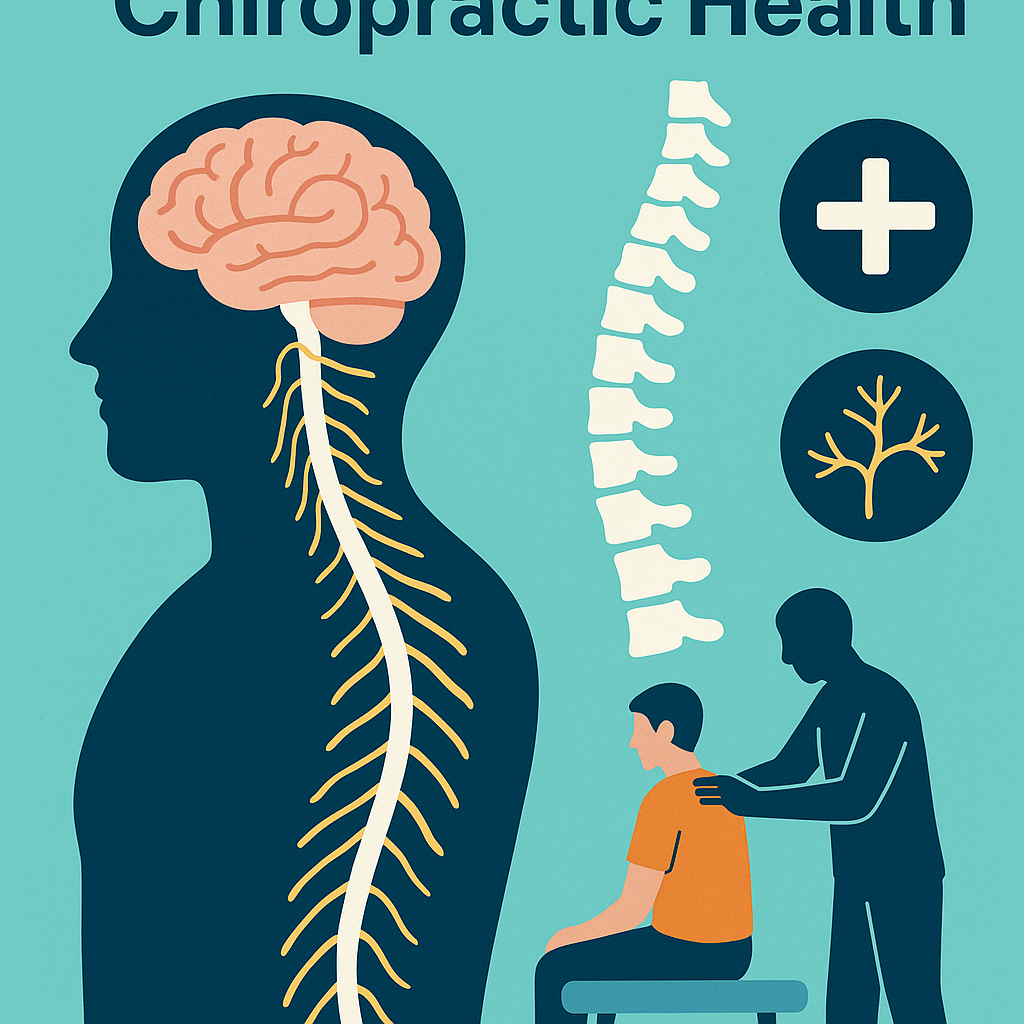Table of Contents
ToggleNervous System and Chiropractic Health
Chiropractic care is often associated with back pain, spinal adjustments, and posture correction for the Nervous System and Chiropractic Health. However, its impact extends far beyond musculoskeletal alignment. At the core of chiropractic philosophy lies the nervous system — the central hub of communication within the body. In this article, we explore how chiropractic health is intrinsically linked to nervous system function and how proper care can lead to optimal wellness.
To find a licensed chiropractor near you, visit Local Chiropractors List.
Understanding the Nervous System
The nervous system is made up of the central nervous system (CNS) — including the brain and spinal cord — and the peripheral nervous system (PNS). These components work together to control movement, sensation, thought, emotion, and organ function. The spinal cord is a crucial pathway, carrying signals between the brain and the rest of the body.
For a comprehensive understanding, you can read more on Wikipedia’s article on the nervous system.
Why Spinal Alignment Matters
The spine not only supports the body structurally but also houses the spinal cord. Misalignments — or subluxations — in the spine can compress or irritate spinal nerves, disrupting signal transmission. Even minor misalignments can lead to nervous system dysfunction, manifesting in pain, fatigue, digestive issues, or decreased immunity.
How Chiropractic Care Supports the Nervous System
Chiropractors focus on the relationship between the spine and the nervous system. Through manual adjustments, they help restore proper alignment, removing interference from spinal nerves and allowing the body to heal naturally.
Chiropractic Adjustments and Neural Communication
When the spine is aligned, the nervous system can communicate efficiently. Adjustments release pressure on pinched nerves, reduce inflammation, and increase mobility, resulting in better coordination between the brain and body systems.
Benefits of Improved Nervous System Health
- Enhanced immune system responses
- Better stress management
- Improved digestion and organ function
- Faster injury recovery
- Reduction in chronic pain and tension
The Vagus Nerve and Chiropractic Influence
One of the most critical nerves in the body, the vagus nerve, runs from the brainstem to the abdomen. It regulates parasympathetic nervous system functions like heart rate, digestion, and immune response. Chiropractic adjustments to the upper cervical spine can stimulate vagal activity, resulting in a calmer, healthier internal environment.
Stress Reduction Through Parasympathetic Activation
In today’s fast-paced world, many people exist in a chronic state of “fight or flight.” Chiropractic care can help reset the nervous system into “rest and digest” mode, where healing and recovery occur most effectively.
Common Symptoms Linked to Nervous System Interference
Many individuals who seek chiropractic care suffer from seemingly unrelated symptoms that trace back to nerve dysfunction:
- Frequent headaches or migraines
- Fatigue and low energy levels
- Digestive disorders (IBS, acid reflux)
- Sleep disturbances
- Tingling, numbness, or nerve pain
- High blood pressure
Scientific Research Behind Chiropractic and Neurology
Emerging studies continue to validate the neurological effects of chiropractic adjustments. Functional MRI scans and thermographic imaging show changes in brain activity and nerve conductivity post-adjustment. Chiropractors increasingly collaborate with neurologists and researchers to advance this field.
Case Studies and Clinical Trials
Clinical studies have shown that spinal adjustments can reduce sympathetic nerve activity and increase parasympathetic responses, leading to improved blood pressure, lower stress hormone levels, and even enhanced cognitive performance in some patients.
Chiropractic for Children and Nervous System Development
Early intervention in children can prevent postural and neurological issues before they fully develop. Pediatric chiropractors help support nervous system development, which is essential for coordination, learning, and immune function.
Common Pediatric Issues Treated with Chiropractic Care
- Colic and reflux
- Ear infections
- Attention and behavioral issues
- Sensory processing disorders
Choosing the Right Chiropractor for Nervous System Support
When looking for a chiropractor, it’s important to choose one who understands the neurological impact of spinal health. Ask about their approach, whether they use nerve scans, and if they have experience with your specific symptoms.
Start your search today at Local Chiropractors List — a curated directory of trusted professionals who specialize in holistic and neurological chiropractic care.
Conclusion: A Healthier You Begins with a Healthier Spine
The connection between your nervous system and chiropractic health is undeniable. By maintaining spinal alignment through regular chiropractic care, you ensure that your body’s command center — the nervous system — functions without interruption. This leads to better health outcomes, improved resilience, and a higher quality of life.
Don’t wait until you’re in pain. Embrace the power of proactive wellness through chiropractic care and give your nervous system the attention it deserves.
Ready to take the next step? Find a chiropractor near you today and experience the difference firsthand.





